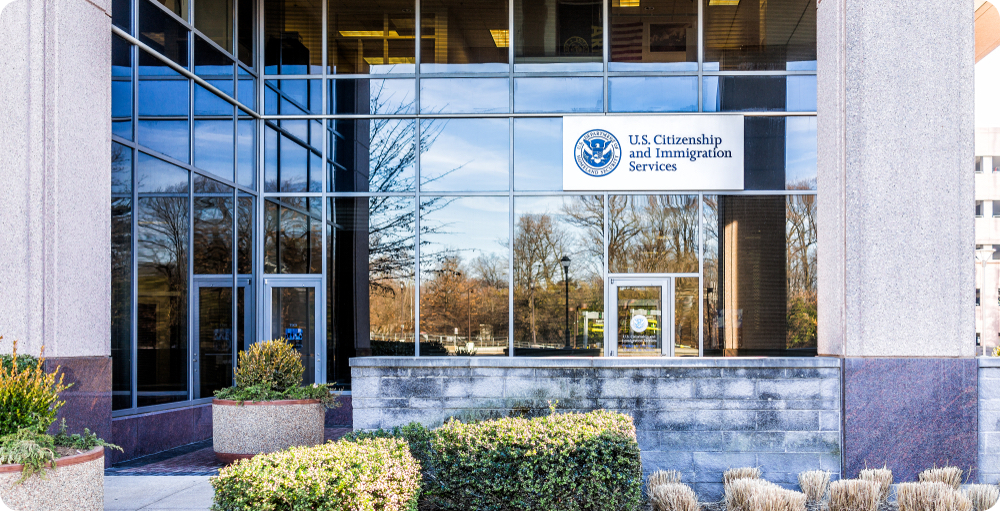In recently published minutes of the last quarterly meeting between USCIS and the plaintiffs in the Behring lawsuit, the agency acknowledges that it has not yet determined if Reform and Integrity Act (RIA) requirements, like fund administration and audits, apply to pre-RIA projects. Also, USCIS is not decided on the future of regional centers that do not file an I-956, Application for Regional Center Designation. Specifically, it has yet to determine if such regional centers will be terminated, or if they will have to file an I-956H (Bona Fides) and annual statements.
In the settlement between USCIS and the six regional centers who sued the government over the deauthorization of the Regional Center Program, it was agreed that for at least two years, and at least once every quarter, the plaintiffs would have a two-hour meeting with the agency about implementing settlement terms and whether any revisions are needed.
The recently published minutes for the October 14, 2022, meeting between the two parties provide a few answers and some even bigger questions for certain regional centers and the investors associated with them.
Does the RIA apply to older regional centers?
The first major issue is whether or not the new regulations apply to regional center projects that predated the RIA. The agency notes the following:
“USCIS has not yet decided whether it will take the position that RIA requirements, such as fund administrators and audits, apply to pre-RIA projects. USCIS will consider stakeholders’ written position paper on this issue in accordance with existing channels of communication and in compliance with Section 107 of the RIA.”
Compliance with the new regulations is demanding and requires attention, time, and money. Older regional centers will be keen to learn what the agency will mandate for their pre-RIA investment projects.
Could regional centers that don’t file an I-956 be terminated?
The other question that remains unanswered may be an even bigger one: what will the happen to regional centers that do not file an I-956? In the industry, there has been an expectation — or perhaps hope — that regional centers would not have to file this application if they were not sponsoring new projects or new investors after the new regulations.
This interpretation is based on language from the settlement as follows: “Previously Approved Regional Centers sponsoring new projects or investors under the Integrity Act will comply with all the requirements of the Integrity Act.” [Emphasis of editor of this article.]
It should be noted the I-956 application comes with a $17,795 filing fee, and this may deter some older regional centers from filing.
But the last quarterly meeting opens the door for even more uncertainty. The minutes, apparently speaking from the perspective of the plaintiffs, addresses this still-open ended issue as follows:
“USCIS has not determined what will happen to regional centers that choose not to file Form I-956. Specifically, it has not decided whether such regional centers will be terminated, whether they will have to file I-956H, whether they will have to file annual statements, or whether any of the RIA requirements apply to them. They will accept our written position paper on these issues in accordance with existing channels of communication and in compliance with Section 107 of the RIA.”
EB-5 business plan writer Suzanne Lazicki weighs in on the potentially alarming consequences for EB-5 investors involved with regional centers that might be terminated for not filing an I-956: “Then past investors in those RCs will find their immigration status in jeopardy.”
She reminds us of the two options the RIA provides for investors involved with terminated regional centers: They will lose eligibility after 180 days unless their new commercial enterprise associates with a regional center in good standing, or unless the investor makes a new investment.
Lazicki also tells us that regional center termination affects investors in different stages of the EB-5 process, even those in conditional permanent residency.
How USCIS answers this question of whether non-filing of an I-956 will result in regional center termination will be crucial to many investors. Any investors involved with a regional center that chooses to roll the dice and not file an I-956 will surely have strained nerves until the Immigration Service makes a decision.
Amendments for pre-settlement I-956 filings
The minutes of the meeting also addressed some other issues. One is that any regional center that filed an I-956 before the lawsuit settlement may make any amendments permitted by the form. Of note, “with respect to geography, USCIS will accept an amendment to the I-956 to expand the geographic scope to larger than what was originally requested.”
Can a regional centre annual statement be deferred till the end of 2023?
The agency also left said it will “ accept input” on whether an I-956G (regional center annual statement) can be deferred till December 2023 as stakeholders have told the agency that the annual statement is redundant with much of the I-956 that must be filed in December of 2022.
The minutes also provide clarification on two more minor issues. First, the investor regional center petition I-526E does not need to include any project-related documents. Second, the agency will “ will look into the issue of rejection of concurrent I-485 filings by the lockbox and hopefully get any mistakes corrected.”
See the October 14, 2022, meeting minutes
See Suzanne Lazicki’s commentary on the minutes in her blog “EB-5 roller coaster continues (RC status after December 29, processing, FY2023 visas, EAGLE Act and country caps)”
See the settlement document





